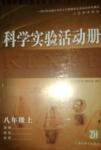题目内容
I will buy this type of car _____ the price is brought down to under 10,000 dollars.
A. even if B. provided that C. unless D. whether
B

 科学实验活动册系列答案
科学实验活动册系列答案Molly was a peasant girl. Her parents did not have much money and Molly did not have many nice clothes.
One day Molly’s father said to her, “Molly, take this pot of milk to market and sell it. You may keep the money.”
Molly was very happy. She put the pot of milk on her head and started her journey to market. While she was walking alone she began to think. “I will get quite a lot of money for this milk,” she thought. “What will I do with the money? I will buy a lot of eggs. I will take the eggs home with me. One of our hens will sit on them. Then there will be lots of little chickens. I will not sell the chickens. They will grow into hens. Then there will be more eggs. And these eggs will give me still more chickens. Soon I will have hundreds of hens. Then I will sell them all. They will bring me a lot of money. I will be rich. I will buy lots of new clothes. I will always wear nice clothes. Then a rich man will marry me. We will have a beautiful house, a big car and nice children...”
Molly was very happy. She jumped into the air. The pot of milk fell from her head onto the road. And that was the end of all her dreams.
In English there is a proverb. It says: Do not count your chickens before they are hatched(孵化).
【小题1】Molly was happy to go to market because ________.
| A.she liked to go there | B.she wanted to buy nice clothes |
| C.she could have the money of her own | D.she wanted to buy some eggs |
| A.count her eggs | B.have a happy dream |
| C.think of her happy family life | D.think how to sell the milk |
| A.She jumped up and fell onto the ground. | B.She was happy about her house. |
| C.She woke and found the milk on the road. | D.She married a rich man. |
| A.one must count his chicken after they are hatched |
| B.it is foolish to make plans |
| C.one must depend more on what is in real life |
| D.one must make plans before they begin to work |
BELJLNG-Eating at a Beijing restaurant is usually an adventure for foreigners, and particularly when they get the chance to order “chicken without sex life” or “red burned lion head”.
Sometimes excited but mostly confused, embarrassed or even terrified, many foreigners have long complained about mistranslations of Chinese dishes. And their complaints are often valid, but such an experience at Beijing’s restaurants will apparently soon be history.
Foreign visitors will no longer, hopefully, be confused by oddly worded restaurant menus in the capital if the government’s plan to correctly translate 3,000 Chinese dishes is a success and the translations are generally adopted.
The municipal(市政)office of foreign affairs has published a book to recommend English translations of Chinese dishes, which aims to help restaurants avoid bizarre translations. It provides the names of main dishes of famous Chinese cuisines in plain English, “an official with the city’s Foreign Affairs office said .” Restaurants are encouraged to use the proposed translations, but it will not be compulsory .“ It’s the city’s latest effort to bridge the culture gap for foreign travelers in China.
Coming up with precise translations is a daunting task, as some Chinese culinary techniques are untranslatable and many Chinese dishes have no English-language equivalent.The translators, after conducting a study of Chinese restaurants in English-speaking countries, divided the dish names into four categories: ingredients, cooking method, taste and name of a person or a place. For some traditional dishes, pinyin, the Chinese phonetic system, is used, such as mapo tofu(previously often literally translated as “beancurd made by woman with freckles”), baozi(steamed stuffed bun ) and jiaozi (dumplings) to “reflect the Chinese cuisine culture,” according to the book.
“The book is a blessing to tourist guides like me. Having it, I don’t have to rack my brains trying to explain Chinese dishes to foreign travellers,” said Zheng Xiaodong, a 31- year – old employe with a Beijing- based travel agency.
“I will buy the book as I major in English literature and I’d like to introduce Chinese cuisine culture to more foreign friends,” said Han Yang, a postgraduate student at the University of International Business and Economics.
It is not clear if the book will be introduced to other parts of China. But on Tuesday, this was the most discussed topic on weibo. com, China’s most popular microblogging site.
【小题1】 What’s the best title of the passage?
| A.An adventure for foreigners who eat in Beijing. |
| B.Confusing mistranslations of Chinese dishes |
| C.Chinese dishes to have “official” English names |
| D.The effort to bridge the culture gap |
| A.some Chinese dishes are not well received |
| B.some Chinese dishes are hard to translate |
| C.some Chinese dishes are mistranslated |
| D.some Chinese dishes are not acceptable |
| A.Recommending a book on Chinese dishes |
| B.Advocating using precise translation for Chinese dishes |
| C.Publishing a book on China’s dietary habits |
| D.Providing the names of main Chinese dishes |
| A.confusing | B.disappointing | C.discouraging | D.worthwhile |
| A.not clear | B.excited | C.favorable | D.divided |